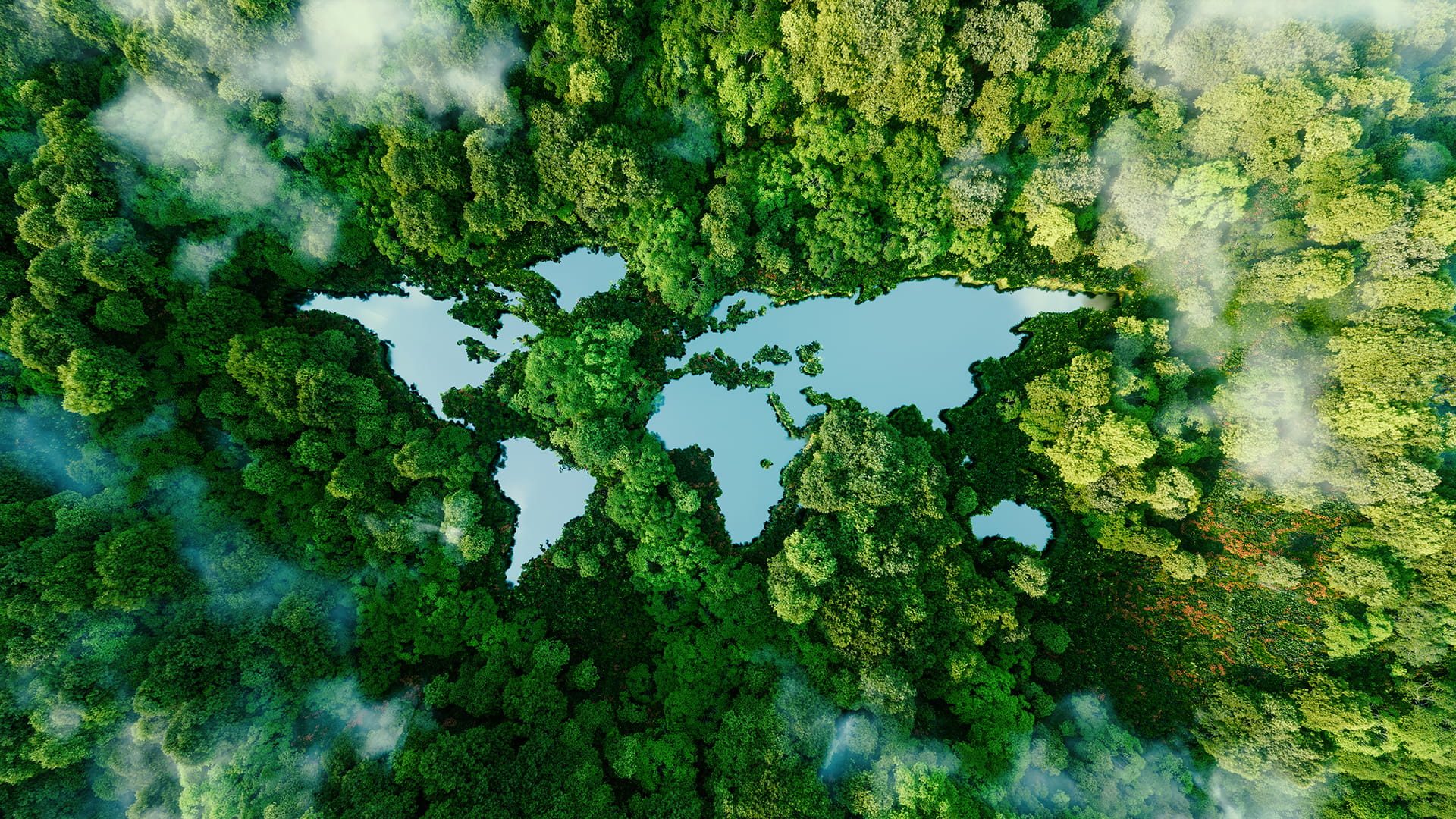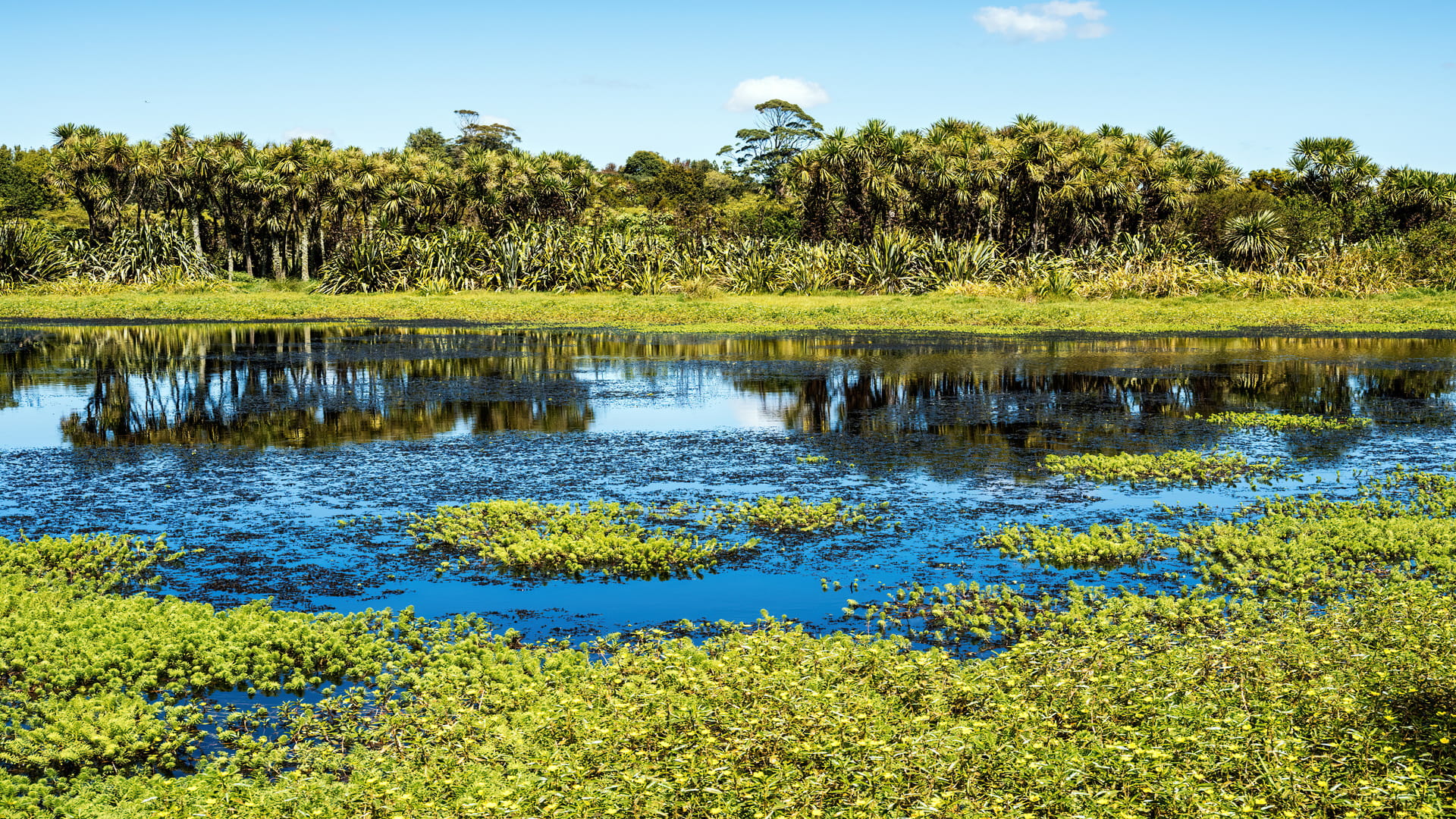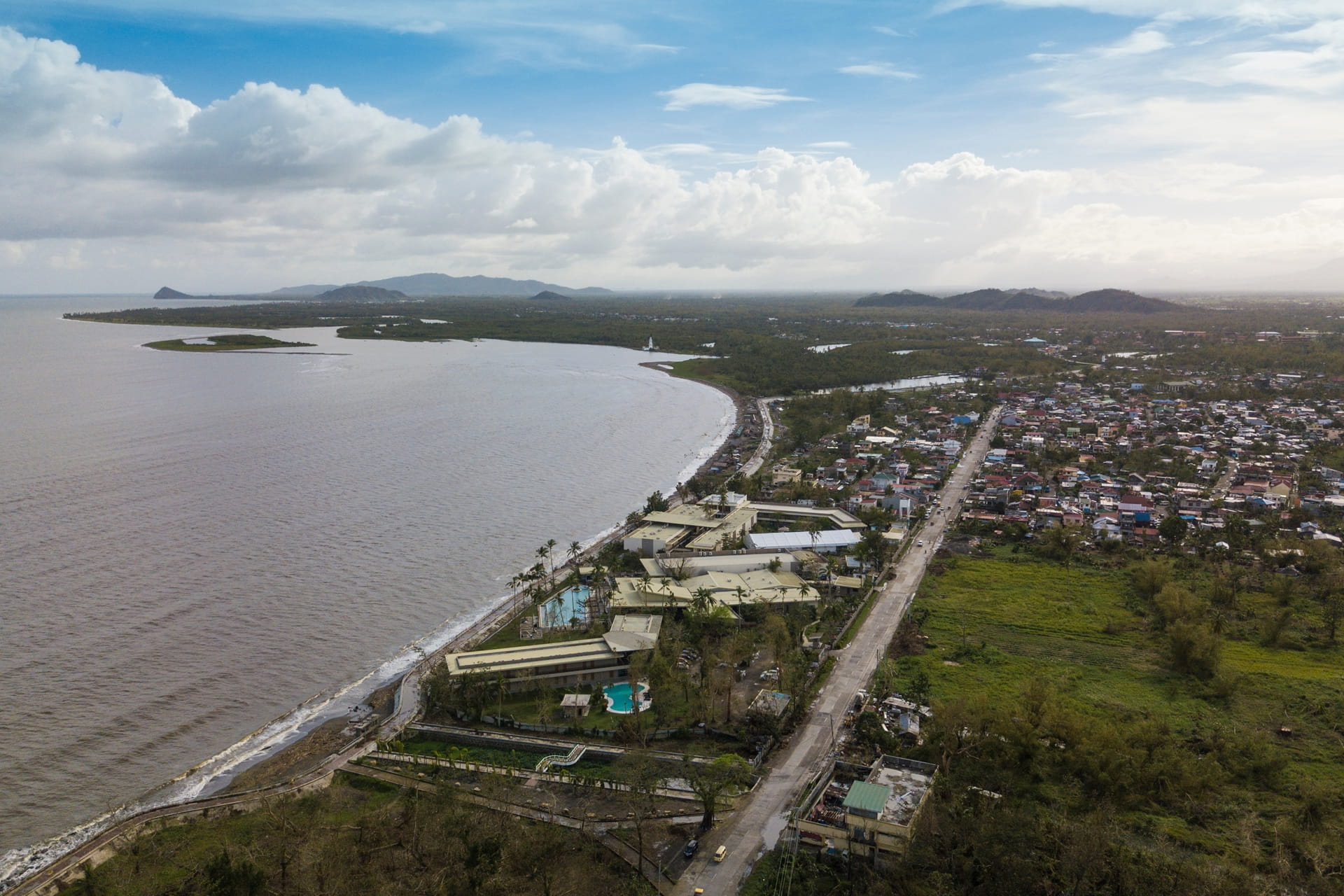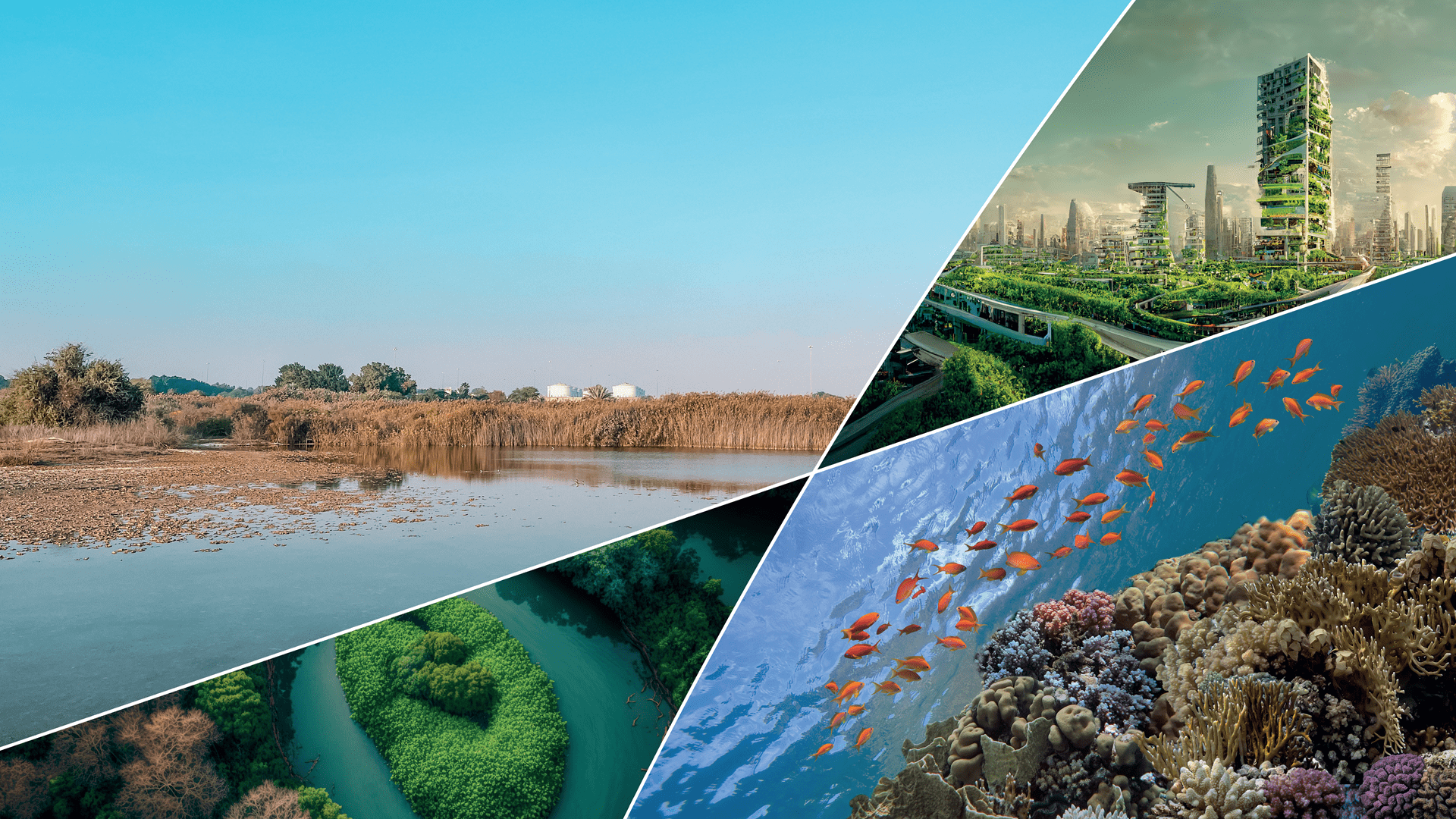Our experts talk nature-based solutions at the World Water Forum
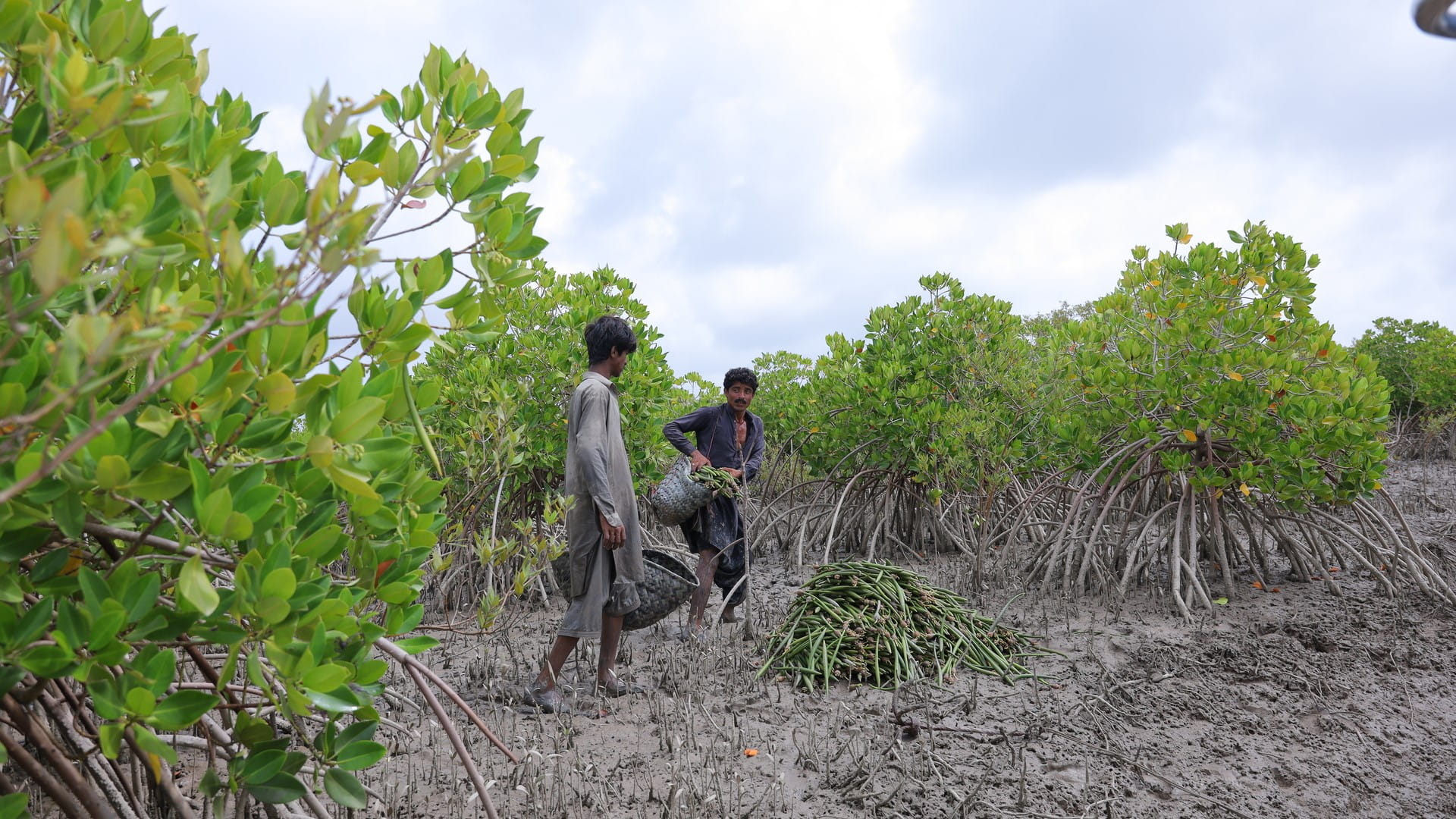
Mangrove planting in Pakistan
Since 1880, the global average sea level has risen by roughly 0.2 metres. But even more worryingly, this rate of change is accelerating.
This can have a potentially devastating effect on the world’s coastal communities, causing erosion, flooding, and risk to human lives. And while over time we may be able to reverse the impacts of carbon emissions, learning to mitigate the effects of climate-related disasters is the immediate priority. This is the field of Disaster Risk Reduction (DRR). There are many ways of reducing disaster risks, but nature-based solutions (NbS) are an eco-friendly way of doing so that is increasingly proving its advantage – especially in countries where expensive high-tech solutions are not feasible.
At Royal HaskoningDHV, we always consider the natural environment as part of our designs, and use the power of nature to create safe, healthy, and climate-resilient solutions whenever possible. From mangroves to green spaces, our NbS help reduce wave height and coastal erosion, protect vulnerable communities, boost biodiversity, and improve water quality all over the world.
Worldwide, people and organisations are starting to see the benefits of more natural solutions. The UN recently reported that with sufficient funding, NbS can provide the means to cost-effectively reach targets to mitigate climate change, improve biodiversity, and restore land degradation. And local communities see huge benefits, too. However, with solutions such as mangrove forests taking between ten and fifteen years to grow to their full capacity, decisions around these actions must be made now for them to sustainably contribute to our future.
There has never been a better time to explore the power of nature than now.
The multifaceted benefits of NbS
At Royal HaskoningDHV, our NbS have been successfully implemented across the world, including the APAC region, with examples found in the Philippines, Indonesia, India, and Vietnam. For coastal protection in tropical environments, our solutions often include mangrove belts. They can help dampen storm surges and reduce wave height, thereby minimising the scope and cost of any man-made embankments needed to protect coastal communities. A recent modelling exercise conducted by Royal HaskoningDHV showed that a mangrove greenbelt could reduce storm surge by 0.5–1.0 metres. That can dramatically reduce costs for the traditional “grey” coastal protection that would accompany such a solution.
As is often the case with NbS, there are also many secondary benefits. A mangrove forest designed to protect a coastline will also result in significant carbon sequestration, for instance. For example, in Pakistan mangroves were planted in the Indus Delta with the aim of carbon sequestration, and the project makes profits from obtaining carbon credits. But as well as meeting this goal, the mangroves dramatically improved the area’s biodiversity. As a result, locals can catch the same number of fish they previously caught in a day in just three hours.
And, when Royal HaskoningDHV experts visited the area, local communities almost collectively asked for “planting more mangroves.” This is often the experience when replacing or augmenting traditional “grey” solutions with those derived from nature – multiple stakeholders, and the environment, experience multiple benefits.
Proving the value and launching a pilot
That said, one of the challenges with NbS can be translating or proving those benefits to drive investment from stakeholders. And this is understandable in areas of the world where money is scarce.

NbS varies across the world and over time, and a small amount of data under extreme conditions exists. This will change as more money is invested, and effects are monitored, but it’s a reason why we conduct feasibility assessments.
These feasibility assessments explore both the technical and economic feasibility of any project to identify the best solution(s) for each individual use case. The resulting report provides stakeholders with the information required to launch pilot projects, which further prove the value of any future investments, but also shows the potential of upscaling those projects in the long term.
For example, in the Mekong region, we know that fish catches have declined by almost 90% in the past 20 years. We are now working with the World Wide Fund for Nature (WWF) to assess the scalability of NbS for the freshwater zone of the Mekong, to regenerate those fish populations and increase climate resilience. From this assessment, pilot projects can be distilled, with a potential for upscaling. Vitally, these pilot projects can practically illustrate the benefits of one or several integrated solutions to every stakeholder, including those involved in activities like tourism and local communities, which can drive investment for further rollout.
Join us in Bali at the World Water Forum 2024
This year's World Water Forum hosted in Bali between 18-25 May focuses on “Water for Shared Prosperity”. Royal HaskoningDHV, a leader in water and nature-based solutions (NbS), is excited to participate.
NbS offer a cost-effective, sustainable approach to water challenges. Mangrove restoration, for example, protects coasts, boosts biodiversity, and improves water quality. Dr. Jasper Leuven, our NbS expert in APAC, will be presenting at the forum. He'll showcase successful NbS projects across the APAC region demonstrating the power of NbS to deliver multiple benefits – protecting communities, enhancing ecosystems, and promoting economic opportunities.
Attendees and experts from all over the world will gather to share their perspectives and expertise, so we’re delighted to play a part in it. We hope to see you there, too.
Monday, 20 May 2024
Session T5A1: New economic approach
Topic: Water circularity for industries
Speaker: Dias Mandala Nurhutama, Water and waste water engineer
Time: 13:00 - 14:30 (GMT+8) | Location: BNDCC 2, ground floor, Mengwi 7-8
Tuesday, 21 May 3, 2024
Topic: Nature-based Solutions for a sustainable future
Speaker: Jasper Leuven, Nature-based Solutions expert in Asia Pacific
Time: 08:30 - 10:00 (GMT+8) | Location: BNDCC 1, mezzanine floor, Kintamani 5
Session 9: EcoShape, exploring green-grey solutions for increased water resilience in South-East Asia
Speaker: Royal HaskoningDHV
Time: 15:30-16:30 (GMT+8) | Location: Netherlands Pavilion
Friday, 24 May 2024
Session 23: Climate resilience in the water sector
Speakers: Mark van Zanten, Hidde Vader, Destry Siagian, Navisa Nurbandika, Jasper Leuven, Ria Verensia
Time: 10:30-12:00 (GMT+8) | Location: Netherlands Pavilion
Championing youth involvement at the World Water Forum
As with all aspects of our future, today's youth will play a major part in managing water for shared prosperity. After all, these people are tomorrow's leaders, and they can bring a unique perspective to the challenges we face today. Promoting youth involvement is therefore a key part of how Royal HaskoningDHV approaches this topic. In collaboration with the World Water Council and the Ministry of Public Works, we recently joined the Bali Youth Plan working group to deliver a range of activities due to take place before, during, and after the tenth World Water Forum in Bali this spring.
These activities are designed to encourage younger people to share their own perspectives and ideas. They include a river cleanup aimed at increasing awareness of the importance of keeping the river clean, and social media campaigns and video competitions to encourage Bali's youth to share their personal stories and experiences. There's also a youth podcast dedicated to discussing water issues, a writing challenge, and a Young Water Sustainability Leaders initiative.
This program is designed to connect young talent with business leaders, academics, policymakers, and industry experts at both national and global levels. The Bali Youth Representatives (BYRs) set to attend were chosen from 2,101 applicants from 159 countries. These young water leaders will be involved in the thematic, political, and regional processes during the World Water Forum.


